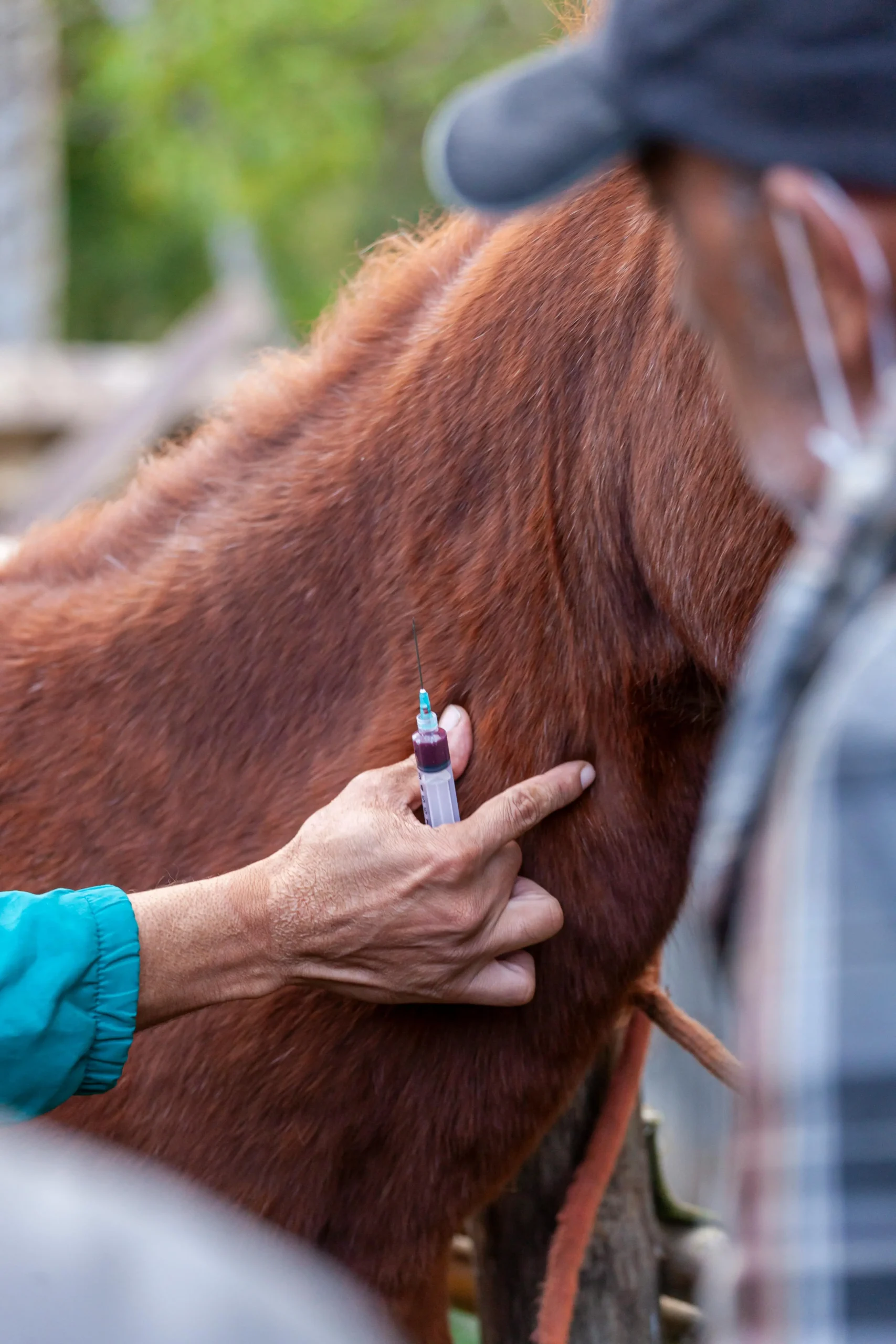Although they’re a hassle to acquire, travel documents are indispensable when it comes to helping control communicable diseases between animals. Having a horse health certificate in your possession adds a layer of comfort in knowing that your horse isn’t at risk of getting infected when attending a show.
Table of Contents
What is a Horse Health Certificate?
A horse health certificate, also known as certificate of veterinary inspection (CVI), is an official document used to verify that your horse is healthy and fit enough to travel. It is critical especially when crossing state lines, travelling internationally, or during equine events like horse racing.
A health certificate for your horse is issued after he undergoes a general wellness examination by a veterinary doctor which includes a current body temperature check.
What is a Coggins test?
A Coggins testis a blood test used to screen horses, mules and donkeys against Equine Infectious Anemia, a viral disease. As a horse owner, you’re required by authorities to have a current negative Coggins testcertificate for any horse you plan to take to an equine event or other public place.
How long is a horse health certificate good for?
Normally, horse health certificates are good for 30 days from their date of issue, but it is prudent to confirm this duration from the state’s Department of Agriculture office as requirements and CVI date of expiry may differ from one state to another.
For example, California CVIs expire 30 days from the date of inspection, but this duration can be reduced in case there’s an outbreak of Vesicular Stomatitis or other disease.
If you are traveling to a horse show, the show’s organizers may have their own set of rules for health certificate validity, so be sure to check with them first before proceeding to travel.
6 month health certificate for horses
Several states provide options to extend the validity period for horse health certificates for up to six months provided the horse owner has a current Equine Infectious Anemia (EIA)/ Coggins test. This extension is intended to ease movement for horses that travel frequently by offering fast and efficient online processing of travel documents.
Over 30 states are currently participating in the Extended Equine Infectious Anemia CVI (EECVI) program, with more planning to come on board once laws that enable the use of extended health certificates for horses are passed.
If you would like to find out whether your state is in the EECVI program, you can contact an official from your state animal health department using contact details here.
Global Vet Link
Global Vet Link, or GVI, is a nationally recognized Compliance Assistant platform that allows vets, animal health officials and diagnostic laboratories to create, retrieve and track animal movement documents, thereby streamlining animal health compliance for all veterinary stakeholders.
The GVI platform automatically uploads health certificates to all 50 state animal health department offices, while also streamlining documentation for international pet travel.
Through GVI, veterinary practitioners can access the following electronic documents:
- CVI (Certificate of Veterinary Inspection or Health Certificate)
- eCoggins (Electronic Coggins)
- EECVI (Equine Extended CVI or 6-month Health Certificate)
How to get a horse health certificate
Are you making travel plans for your horse? There are a few to do’s you should include for a smooth experience.
- Schedule a health certificate exam and Coggins test for your horse before firming up the travel date.
- Get in touch with your local veterinarian for advice on additional vaccinations or health documents that may be required.
- Request the certificate of veterinary inspection at least one week before your departure date.
- Contact the destination state’s Veterinarian’s Office to find out what their animal travel guidelines are at least one month prior to your trip. Most states ask for a negative Coggins test performed within the last year, or within the calendaryear of travel. Some states require it to have been done within the last 6 months.You can also visit Global Vet Link’s animalregs.com to access health certificate information.
- Some states need you to have a negative Piroplasmosis test to allow you entry, so you may have to factor this in your travel plans.
- Check with the event organizers to find out if they have extra health requirements for exhibitors.
- Have your paperwork ready with these details:
- Your particulars as well as your horse’s
- The destination address
- The travel dates
- Hauler information
Related Article: How to Train a Horse to Piaffe: 3 Expert Tips for Success
How to access my travel documents online
As a horse owners, you can create and log into your Owner Account to access eCoggins, CVI or EECVI documents. Trainers or barn managers, on the other hand, can retrieve these documents by creating and logging into an Animal Agent account.
To find out how to create an Owner Account or Agent Account, visit https://myvetlink.com
Related Article: What to Wear Horse Riding: 8 Essential Gear for Safety
How much does a horse health certificate cost?
The cost of a horse health certificate in the United States depends on various factors, including:
- Initial veterinary requirements – the cost of microchip insertion, vaccinations, and blood tests can range from $50–$200.
- Final veterinary exam – the cost falls between $50 and $200, based on the veterinarian’s fees and location.
- Health certificate fee –you may incur an extra fee of $50 to $150 for the CIV depending on the vet you use.
- Rush fee – Some vet practices charge a rush fee in case you need a health certificate issued within two business days.
References

